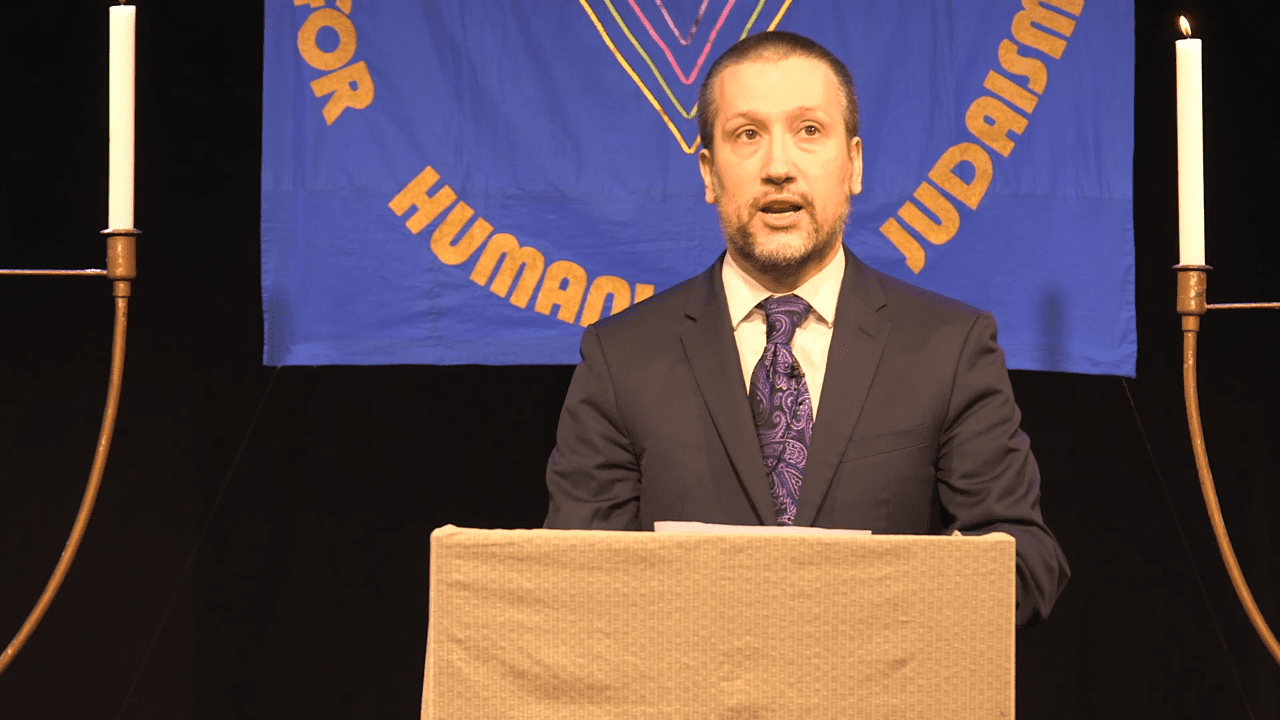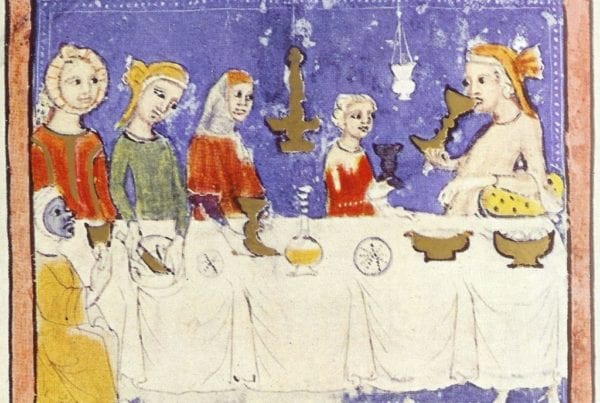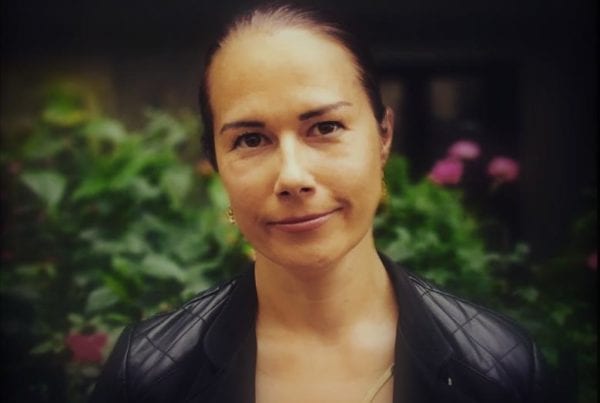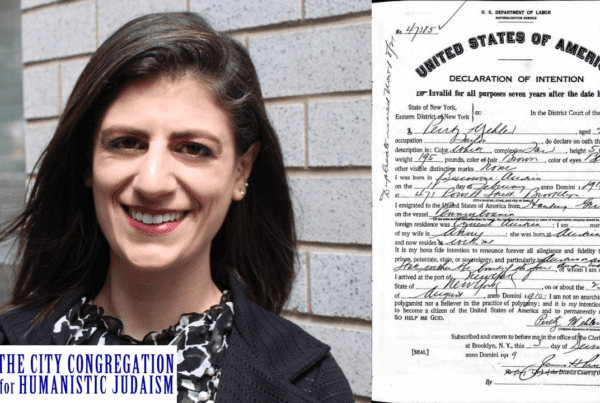
During the Yom Kippur service, Rabbi Tzemah gave this sermon. Watch the video or read the transcript below.
Watch a recording of the sermon:
MY PILLARS
Dear Friends,
This High Holiday season, I find myself leaning into the pillars that support my world, the values that I hold dearest and the poetry that expresses them best.
My favorite poem in the world, by Avraham ben Yitzchak begins with the words:
Blessed are those who sow but do not reap / For they have wandered far
Blessed are those who are generous / And in their glorious youth have made the days lighter,
Throwing their jewels as they traverse the story of their lives.
It is a poem about the greatest human beings, who have enriched the world and touch everyone in passing; it is a poem about unfettered generosity. It is a poem about philosopher kings, who are self-actualized and live out their ideals at peace with the world.
The poem is one of my literary models for how to live life, and in the moments of introspection preceding the High Holidays, I asked myself whether I was holding myself up to the ideals encapsulated in this poem.
The answer was no.
One of the central tenets of Humanist Judaism is the verse from Leviticus 19, which commands, love your neighbor as yourself. This tenet has been expressed in many different ways throughout history. Hillel the Elder says this message encapsulates the entire Torah. James, the brother of Jesus, said that it is part of the Royal law, Kant said it was the prime imperative and there were and are countless thinkers all over the world who echo this directive.
One of a more skeptical bent may retort, “Love your neighbor as yourself” is great as general principle, but it was first articulated in the Hebrew Bible, a text which most definitely did not advocate a humanist philosophy. In the context of Leviticus, “Love your neighbor as yourself” meant: Love him and not her, since women are unequal to men. Love your neighbor the Israelite, but not the Canaanite who you are commanded to destroy. Do not love your neighbor if he happens to be the idolater who you are commanded to expunge from your midst, or the homosexual who you are commanded to kill.
It is such a beautiful articulation, so profound and universal, but I doubt that many in the biblical period actually believed it in its entirety or lived up to it.
Humanity has thankfully progressed and today many of us do believe this more fully than ever before in human history, but I personally still do not think that I have lived up to this categorical imperative.
Have I truly treated my neighbor as I myself would wish to be treated?
I ask myself: have I truly loved and sought to understand transgendered people who experience the world so differently? Would I unthinkingly misgender people if that were indeed the case?
I am Jewish and my family bears the scars of the Holocaust, yet how do I address the other anti-Semitism that I am guilty of, anti-Muslim bias? Can I appreciate the harangue of comments and looks, and violence endured by a woman who wears a hijab even in the multi-cultural city of New York?
According to a 2018 New York City Commission on Human Rights report, one in four women wearing a hijab was pushed on subway platforms, and that is just the beginning of the awfulness in the survey, which highlights alarming rates of intolerance and discrimination in our city.
I ask myself: am I truly a ‘neighbor’ to an African American or Latina woman? Have I truly considered the systemic racism that she endures constantly? Her obstacles as she seeks to care for her children, and provide for her family, or even walk down a street in peace?
In 2019, I read an awful story comparing two cases of children brought to the ICU. One was that of the famous actor Jason Biggs, whose child suffered a minor skull fracture due to an accidental drop, the other a Latina mother who had witnessed her children banging their heads together and taken one of them to the hospital. Jason Biggs and his wife were treated with compassion and understanding, which is what one should expect. The Latina mother was met with hostility and suspicion of abuse. Without consulting a doctor, with no evidence, and giving the mother no opportunity to consult with a lawyer, Child Protective Services removed both the nursing baby and the older child, and a suit was filed against her and her husband for abuse. An able public defender was able to convince the judge to throw out the case. But the public defender said that she had defended six clients against similar charges, all of them black or Latino.
I cried for a long time when I read this article; my little boys have received bad head bumps before, and just like Jason Biggs, I was met with compassion and understanding. I can’t imagine being separated for even a moment from my babies, especially when they are in a strange place being prodded by doctors and are so scared. But I am white, and so this is so much less likely to happen to me.
Can I truly understand the other, whoever the other may be? Can I truly put myself in someone else’s shoes when I live in my bubbled world of privilege?
I don’t know if I can, but I am resolved that I shall continue in my attempt to do so, for that is the nature of a universal principle; we cannot entirely live up to it, only strive towards it. And yet we can come closer each year. This year I feel we have made a giant leap forward, for we have been forced to take a closer and deeply uncomfortable look at our privilege.
It was especially uncomfortable for me during the protests in June, when New Yorkers spoke out following George Floyd’s murder. I was so scared for myself and my family, that the total lockdown we had endured for more than two months would be for naught, as people gathered to protest the discriminatory policing practices and violence. What do you do when the cause is entirely justified, but you feel the act of public protest is morally problematic? I don’t know. I’ve since questioned whether I would have thought that if I truly loved my neighbor as myself, if I could truly put myself in the shoes of people who have endured systemic injustice for so long and had reached a breaking point. I still don’t know the answer.
Many of us are privileged in some ways and unprivileged in others.
I am white, and the systems under which we live were built with white people in mind.
I am male, and despite many years of progress towards gender equality, I am more likely to earn more, the professions of my choice are more open to me, and my attentive parenting is taken as a sign of how good a father I am, but it is just a given for so many mothers. That is so unfair.
I am heterosexual, and despite the recent Supreme court decision, so many LGBTQ people fear identifying as such for justified fear of losing their job security.
Where do I lack privilege? I am a Jewish atheist, when atheism isn’t entirely an acceptable position in the Jewish world. I have an odd, mostly unpronounceable name, which has been an impediment in my search for employment. I am introverted in an extraverted world.
The key difference between most of my privileges and those of others is that my privileges are systemic. The systems under which we live are skewed in my favor, were built with people like me in mind. But my disadvantages are for the most part are non-systemic.
If I truly believe in loving my neighbor as myself, I must always think of this as I engage with others. I will invariably fail at times, but in striving to understand the other, to put myself in their shoes, I will be one step closer to fulfilling the values stated here:
Blessed are those who sow but do not reap / For they have wandered far
Blessed are those who are generous / And in their glorious youth have made the days lighter / Throwing their jewels as they traverse the story of their lives.
Shanah Tovah!
To see upcoming events or watch them live, check out our calendar



